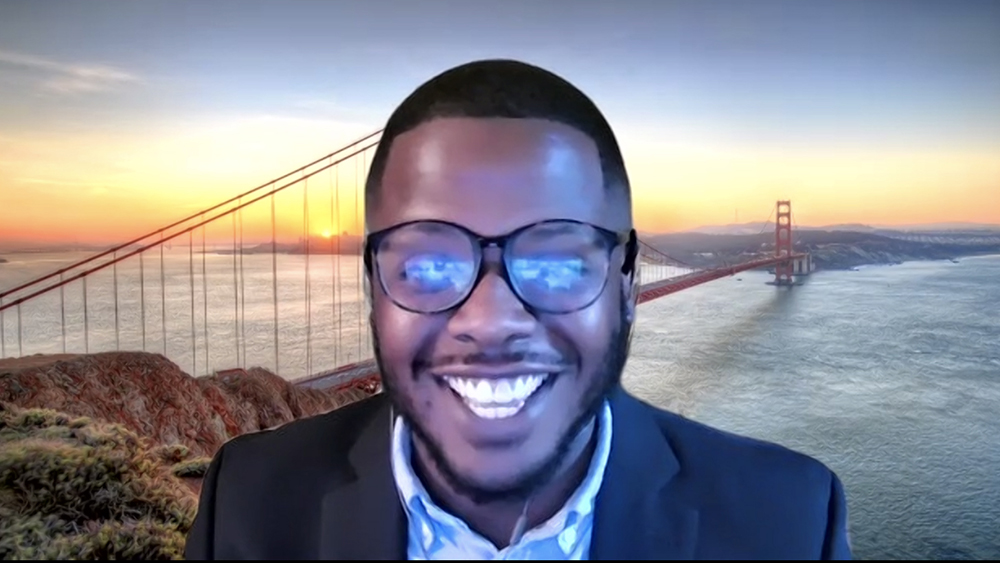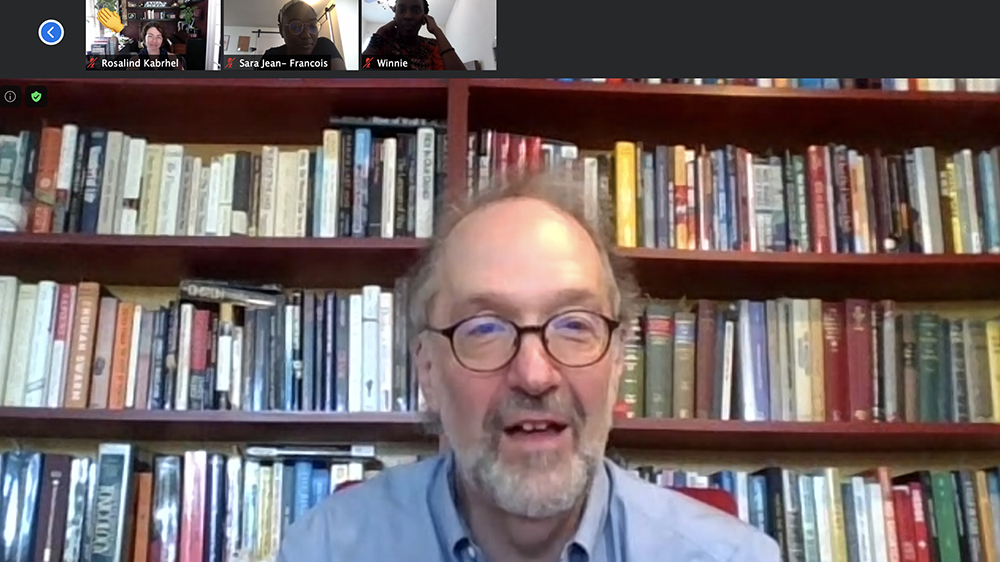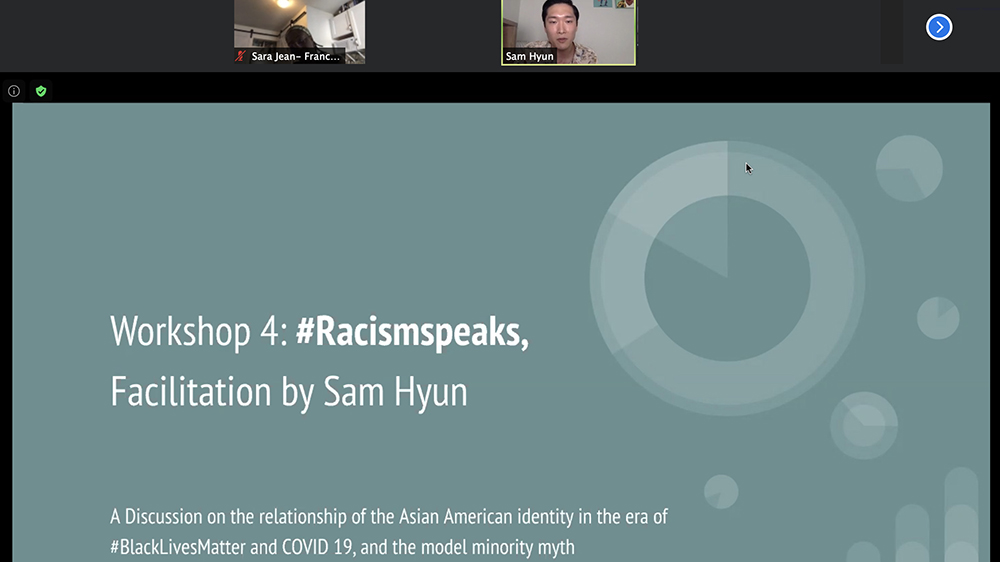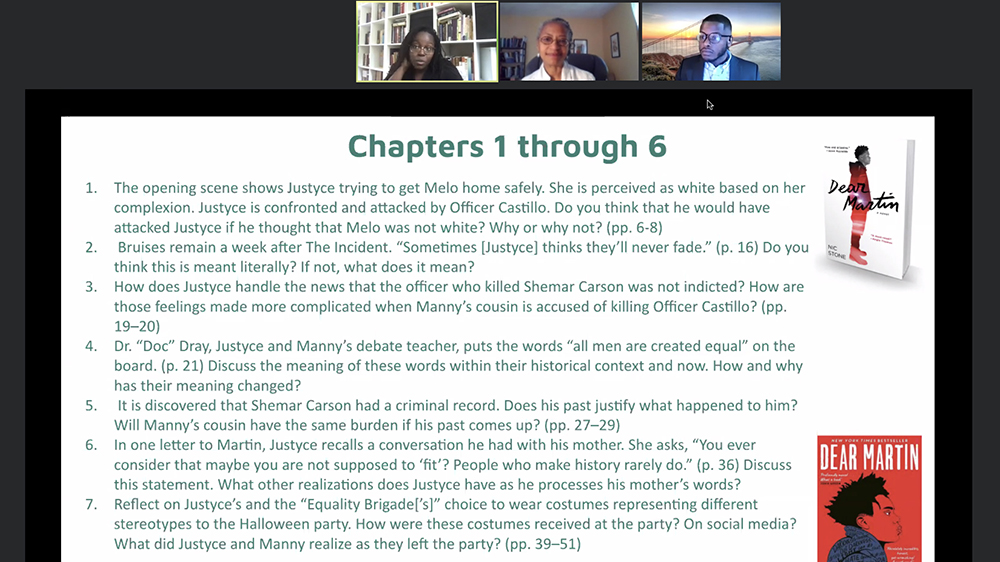By Karen Shih
For the second year, Heller hosted Boston Public Schools (BPS) students who have been involved in the juvenile justice system for the Summer Transition HOPE Institute. The program gives system-involved youth an opportunity to engage with universities and colleges across the greater Boston area throughout the summer.
“Now, more than ever, we need to invest in these types of programs to inspire youth to see themselves as belonging and included in higher ed,” says Associate Dean Maria Madison. “The reason we do this work is to help build a pipeline of possibilities for all youth. For some, the pipeline may include finishing high school, attending college and maybe even acquiring a graduate degree at Heller. This should be a vision available for every child, regardless of their life circumstances.”
This year’s Heller HOPE Institute program manager Sara Jean-Francois, MPP’21, led the creation of a robust week of activities, which were moved online because of COVID-19.
“I’m focused on issues of higher education equity, and I’m familiar with the expectation of less that’s pushed on students of color and system-involved youth,” Jean-Francois says. “We centered the program around their experiences and skills, to give them the tools to talk about what they’re feeling.”
The dual crises of the COVID-19 pandemic, which disproportionately affects Black and Brown communities, and racial justice and police accountability protests, informed her team’s planning. Each day centered on critical discussions, such as the power of knowledge, education access and equity, racism across communities, or difficult questions like “Why are all the Black people dying?” Students who were old enough were also registered to vote during a session led by Brandeis Librarian Aimee Slater, who also encouraged them to inspire others in their communities to vote.
About 15 BPS students participated in Heller’s week-long program under the guidance of Janelle Ridley of the Boston Mayor’s Office. In 2018, Ridley created the HOPE Institute, which stands for high expectations, opportunities, pathways to success, and encouragement, with a holistic framework designed to ensure all system-involved youth have access to educational equity. This summer, the program is partially supported through a Heller-managed grant from the Boston Resiliency Fund, providing students with supplies and meals, with the assistance of Sylvia Stewart from the Institute on Assets and Social Policy.
"I believe a major root cause of systemic racism is lack of education and awareness,” says Ridley. “Policymakers very rarely engage with people living in the margins of society. In order to create an equitable society, we must promote the voices and lived experiences of our most vulnerable populations. I created Transition HOPE because I believe these young people are the change agents to dismantle the cradle-to-prison pipeline. We must transform higher ed institutions to combine academics with lived expertise toward closing the inequity gap.”
One of the speakers that the students were most excited about was Aaron Bray ’13, a Brandeis alumnus and graduate of Harvard Law School who grew up in Dorchester, where many of the HOPE participants live. He showed a music video for “The Bigger Picture” by Lil Baby to draw students into a discussion of the Black Lives Matter movement, and clips from a television show about a fictional encounter between a Black man and a white police officer to discuss laws around resisting arrest, rioting and self defense. The key takeaway for the students was that knowledge of the system can lead to getting justice in an inherently unjust system.
“They were very passionate about the conversation that was happening and willing to participate,” says planning committee member Winnie Rugamba, MA COEX’20. “It allowed them to engage with their own critical thinking through something they can relate to.”
Moving the program online wasn’t easy for many reasons. Ridley and the team had to scramble to find a location in Boston for the BPS students to safely gather, find partners to loan out iPads for students to Zoom into the conversation, while also working with seven universities to create programing—all while maintaining social distancing.
For Rugamba, who helped plan HOPE Institute at Heller in 2019, “The hardship of even finding a location to host the program was a reflection of the lack of resources these students face. It reminds us of our own privilege, knowing we can work virtually.”
Despite the challenges, “a beautiful relationship has been born between HOPE Institute and Heller,” she says. She reconnected with several students she first met last summer, and valued the opportunity to see how the students were doing.
For fellow Dorchester native and PhD candidate Andrea Motenko Harris, who was part of the planning committee, “HOPE was such a joy, because of the kids and the spirit of the program was so near and dear to each of us. For those of us who came up in Boston, with experiences similar to those of the kids who came through, we saw ourselves in what we were doing.”
Five of the BPS students will join Madison’s course, “Racial and Gender Inequalities in Health and Health Care,” this fall. They will be matched with Brandeis undergraduate students to give them their first experience in a college class.
“For Heller, it’s important to walk the walk. As we seek to transform the nation and the world, we have to start in our backyard. These kids are brilliant in their own right. We have to help them understand how they can direct their own paths out,” Harris says.




